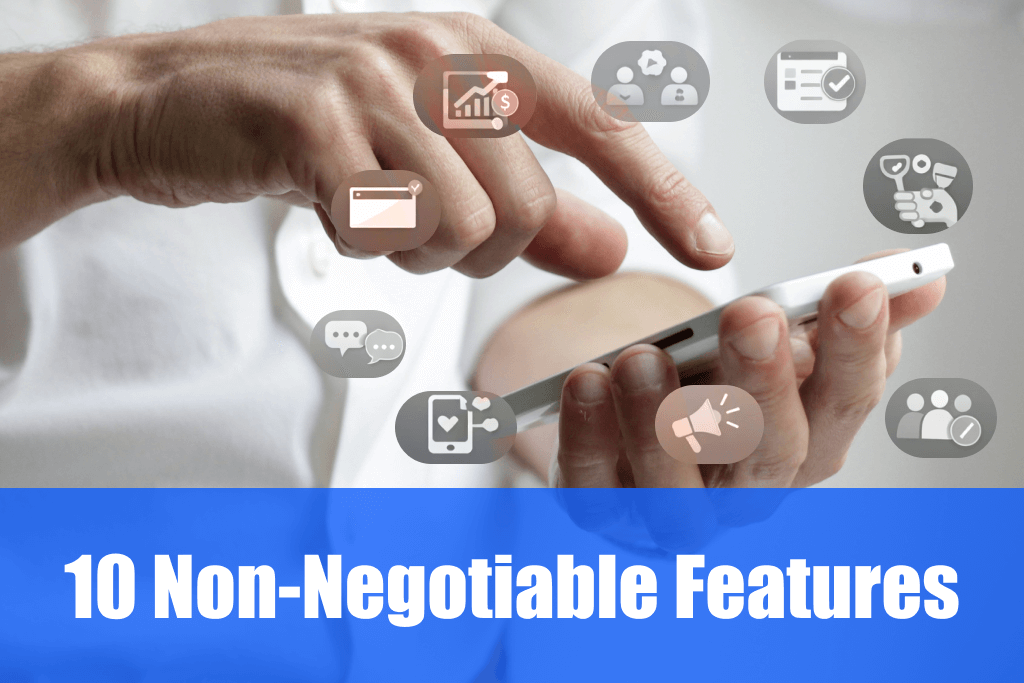Key Takeaways
- Virtual events eliminate geographic and cost barriers, making formats like conferences, expos, product launches, and job fairs highly scalable and accessible for global audiences.
- Different event formats serve different goals for example, virtual summits boost thought leadership, online expos drive lead generation, and virtual onboarding enhances employee integration.
- Interactive features are essential for the success of a virtual event. Tools like live polls, 3D booths, AI matchmaking, and real-time chat enhance engagement and ROI.
- Virtual events are especially valuable for small businesses due to lower overhead, better data tracking, and broader reach without heavy investment.
10 Different Types of Virtual Events
Virtual events have come a long way from basic webinars. Today, brands and organizations are using all kinds of creative formats to connect with audiences, drive engagement, and deliver real value. Whether you're planning a conference, product launch, or job fair, here are some of the most effective virtual event types to explore.
1. Virtual Conferences and Summits
.jpg)
Physical venues have always been a barrier, especially for companies looking to target international audiences. That is where the virtual summit steps in. Allowing brands to host keynotes, panel discussions, and networking sessions without incurring travel or logistics costs is what sets virtual conferences and summits apart in the competition.
Such virtual event formats are ideal for product education, thought leadership, and global brand positioning. When planned and executed properly, with a focus on audience engagement through breakout sessions and live polls, it can effectively replicate physical conferences. Check the Ultimate Guide to plan a successful Virtual conference for more information.
For instance, TED@PMI hosted a multi-stage virtual summit in 2020 that drew 35,000 project management professionals from over 50 countries, featuring wellness sessions and networking lounges.
2. Online Trade Shows and Expos

If you want to showcase your products and generate leads on a scale, arranging an online expo should be your next move. Online expos offer features such as customizable booths, demo areas, and lead capture tools that operate 24/7. Here our Ultimate Guide to Planning a Successful Product Launch Event will help you understand the process.
Such formats are ideal for B2B or B2C, lead generation, partner engagement, and brand visibility. You can incorporate features like downloadable brochures, in-event discounts, and real-time chat to make it even more engaging.
3. Virtual Product Launches
.jpg)
Product launches today don't need ballrooms; they need bandwidth. With the right mix of livestreams, influencer collaborations, and tutorials, you can create buzz and turn heads globally.
Virtual product launches are ideal for consumer brands, tech rollouts, and markets driven by hype. To instantly increase the return on investment, consider incorporating 'add to cart' links during the stream.
An example includes Snap’s AR Spectacles reveal in 2024, which was streamed worldwide via their Partner Summit, showing how product launches can go global even before products hit shelves.
4. Virtual Career and Job Fairs

The talent pool is no longer limited to geography. Using the right tools and a user-friendly platform, you can organize virtual career and job fairs that allow you to conduct real-time interviews, feature employer booths, and showcase branded video content.
Such formats are best for HR teams, recruiters, and universities. You can include resume drop zones and incorporate one-to-one video chats to improve candidate quality.
5. Virtual Education and University Fairs
.jpg)
For schools, colleges, and universities, virtual education and university fairs are powerful tools for attracting international students. This helps cut costs that educational institutions might otherwise spend on traveling across continents.
Virtual education fairs are an ideal pick for institutions looking to expand globally or connect with alums. By hosting live open days, virtual campus tours, and alumni Q&A sessions, institutes can replicate the experience of physical university fairs.
Take the Mock COP26 Youth Summit, which held 350 youth delegates from 141 countries who worked together online to draft real policy proposals over two weeks
6. Online Concerts and Entertainment Events
.jpg)
Online concerts and entertainment events are one of the most successful virtual event formats. Live entertainment thrives online too, mainly when fans know they are no longer restricted by geography or high costs.
Such events are perfect for musicians, labels, influencers, and entertainers. When tiered with VIP passes, exclusive merchandise, chatrooms, or backstage footage, online entertainment events can attract even more viewers.
7. Virtual Onboarding and Training Events
.jpg)
Hiring remotely isn't the complete task. A company must arrange training sessions and create culture-rich experiences to help new hires adjust to the company and accelerate their integration. All of this can be accomplished through virtual onboarding and training events.
This event format is ideal for fast-growing teams, remote-first companies, and HR teams. When paired with gamification elements or quizzes, training sessions can be even more engaging..
8. Virtual Shopping Events and Malls
.jpg)
Virtual shopping events and malls are the future of retail. They are part event, part eCommerce, and fully digital. These events enable consumers to explore brands in a 3D space, shop in real-time, and chat with brand representatives on the spot.
When incorporated with influencer-hosted streams to walk shoppers through new collections, it can instantly boost sales for DTC brands, retailers, and marketplaces.
9. Virtual Benefits and Wellness Fairs
.jpg)
Virtual benefits and wellness fairs are ideal when HR needs to clearly and concisely explain healthcare, 401(k) plans, or wellness programs. These formats are suitable for mid-to-large organizations seeking to streamline HR communication.
To make it more interactive, you can offer live plan comparison tools, real-time Q&A, and downloadable brochures.
10. Niche Virtual Events
.jpg)
Niche virtual events are where one targets a selected group of the audience. These events might not need mass appeal. These can create significant value by serving a specific target audience. Some specific communities include pred lovers, hobbyists, vendors, and brides.
Tools like live demos and AI-powered matchmaking in virtual event management platforms can help such event formats gain value.
Eventify Makes Every Virtual Event Type Seamless
No matter what kind of event you are planning, whether it's a global summit or a product showcase, having the right tools and platform makes all the difference.
Eventify is an all-in-one event management platform that gives you the right tools to plan and execute a virtual event beautifully and efficiently.
From customizable virtual environments and live session streaming to interactive booths and AI-powered matchmaking, an event organizer will have it all to engage the audience, meet goals, and increase ROI.
Frequently Asked Questions
Which type of virtual event suits my industry?
The type of virtual event format you use depends solely on your goals. If you're in tech or B2B, virtual conferences and trade shows are great for thought leadership and lead generation. Brands and retail stores benefit from virtual product launches while HR teams thrive with benefit expos and onboarding fairs.
The key to choosing the format that best suits you depends on your audience's interest and behavior, and your KPIs.
Are virtual events better than hybrid or in-person formats?
Virtual events are better than hybrid and in-person formats in terms of scalability and flexibility. These events remove geographical limitations and reduce costs associated with arrangement, management, venue, and logistics.
If you are not specifically targeting an international audience or aiming to reduce overall expenses, you can opt for hybrid or in-person events.
Can virtual events drive ROI for small businesses?
Yes. Small businesses often achieve higher returns and lower risks by opting for virtual events. These businesses can skip the logistics costs of venues, travel, and setup, while gaining measurable insights such as engagement time, click-throughs, and lead quality. In short, virtual events are crucial for practical conversions.






.png)
.jpg)




